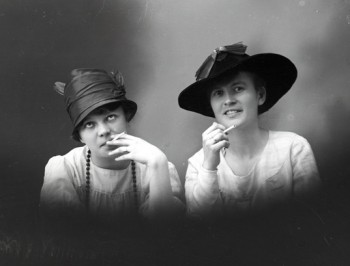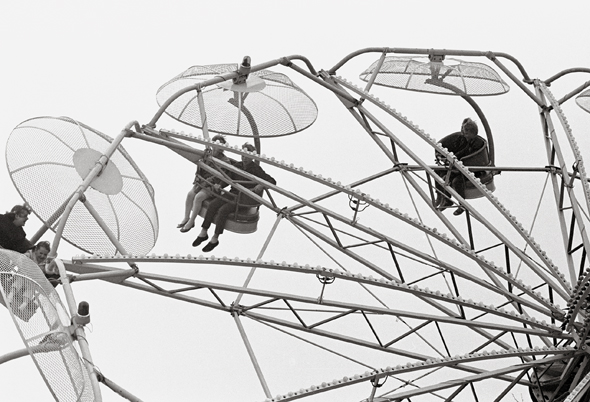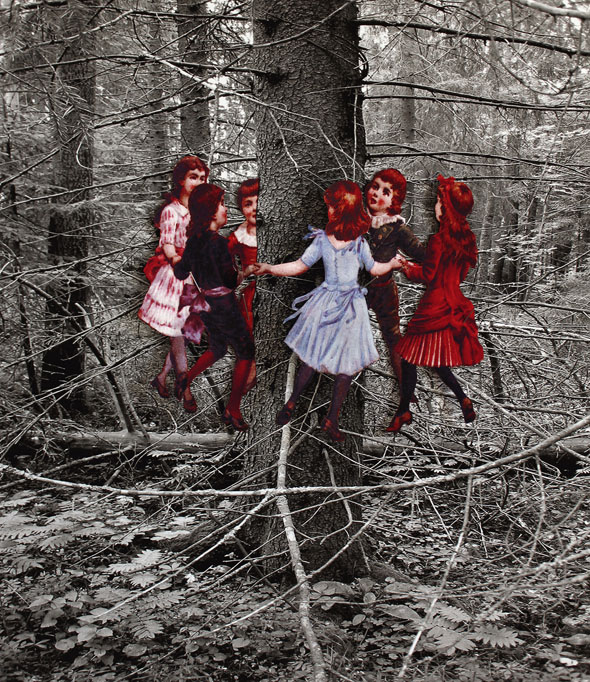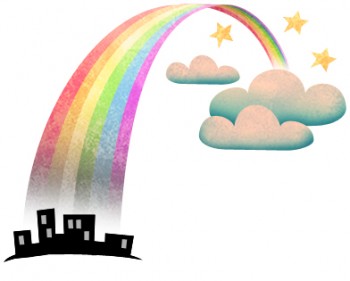Search results for "2010/02/let-us-eat-cake"
Daughter of Cain
30 June 1985 | Archives online, Fiction, Prose
An extract from the novel Kainin tytär (‘Daughter of Cain’, 1984). In the following extract Anna and Risku spend a single night recalling the early days of their relationship; Anna is in the country, Risku is in the city. Introduction by Soila Lehtonen
Anna
The moon hangs before the bosom of the sky, a slender crescent, but giving light all the same.
On the horizon a black, glimmering line emerges from the water. It is the skerry, a low, lone rock.
I shut off the motor. The sea laps minutely against the side of the boat. This far out there are no longer any birds.
The silence here is deeper than even that of an empty room.
The skerry is as black and glistening as the back of a pike.
Light is matter, it’s never steady.
Whatever is understood in life is understood in a sudden blue illumination, like lightning cleaving the night to expose the landscape – shadows, hollows and all. More…
An eye of the unseen
30 June 2007 | Archives online, Fiction, poetry
Poems and aphorisms by Aaro Hellaakoski. Introduction by Pertti Lassila
Evening
How tranquilly the evening’s darkening,
dusk deepening beneath the trees.
Consult the long alleyways of the skies
for the gift of this evening
and the cause of your ease.
But the waste! the pain and stress –
those reachings into secrets of the dark –
quarrying endlessness,
plummeting bottomlessness,
quizzing every question mark.
Why this rummaging into whence and why?
Empty let’s be. Open and free.
Let secrets come, or let them fly
away, diffuse like cloudscapes
or whisperings through a tree.
Eyes must glow as your spirits peer
through a wakeful cranny in where you are.
Only the silent have ears to hear.
When the doorstep feels the touch of a toe
only the vigilant’s door is ajar.
Huojuvat keulat (’Swaying prows’, 1945) More…
Hilda Husso
31 March 1980 | Archives online, Fiction, Prose
A short story from Kun on tunteet (‘When you have feelings’,1913). Introduction by Irmeli Niemi
A Phone call between Hotels
‘Hello – is that the Francesca?’
‘— — —’
‘I’d like to speak to Mr Aksel Lundqvist, the maître d’hotel, if it’s possible, please.’
‘— — —’
‘Oh, I see, that is Mr Lundqvist. I’m ringing from the Iris Hotel. It’s Hilda Husso here – do you remember me, Mr Lundqvist?’
‘— — —’
‘I used to be at Ekbom’s, as a cleaner, in the Brasserie, and I got pregnant – it was a boy, you may remember?’
‘— — —’
‘Hello, what was that, I can’t hear?’ More…
On the bridge
30 June 1993 | Archives online, Fiction, Prose
From Saksalainen sikakoira (‘Schweinehund’, WSOY, 1992). Introduction by Tuva Korsström
From somewhere beneath the bridge – I still hadn’t managed to get across it, which may sound pathetic, or even ridiculous, unless you take into account my exceptional state of mind – or, rather, to one side, I heard a dragging, ominous grinding and rumbling. It stopped for a moment; then, after a short but clearly defined pause, there was a heavy splash. A snow-plough was emptying its load into the bay from the end of the pier. The mounds of snow sank deep into the black water; the tightly packed, sticky snow rose slowly to the surface in greyish-yellow blocks and clods; loose pieces of snow boiled and foamed in the eddies and melted before my eyes. My time was melting away, too, being junked, my remaining time… More…
Lest your shadow fade
31 March 1987 | Archives online, Fiction, Prose
An extract from the novel Jottei varjos haalistu (‘Lest your shadow fade’, 1987). Interview by Erkka Lehtola
‘… learn, then, to like yourself.
Dancing beside your shadow, laugh and play.
Dance always in the sunlight, lest your shadow fade.’J. Fr. Erlander, 1876 (Erika Kuovinoja’s grandfather)
‘Tis in life’s hardness that its splendour lies.’
J. Fr. E., 1890
Three days before the date fixed for the funeral, the minister directed his steps towards the home of the deceased, trying, as he walked, to compose his thoughts, which were full of righteous Lutheran anger. There were many good reasons for this. On the other hand, nothing that had happened in the past ought to make any difference, now that he was on his way to visit a house of mourning. A visit that called for the exercise of understanding, and even, if possible, kindness. It was a lot for anyone to expect, even of a clergyman. It was not by his own desire that he was paying this call: it was a matter of duty. And this time he was the protagonist. Petulantly, his shoes crunched the gravel. More…
The attentive lover
31 December 1988 | Archives online, Fiction, Prose
In this short story, from his collection Pronssikausi (‘The bronze age’, 1988, on the Finlandia Prize shortlist in 1989), Martti Joenpolvi takes up the subject of the problematic transportation of a human cargo
He braked abruptly; the woman lurched forward, straining against the seat belt, and the car drove into the parking space. The only vehicle parked there was a solitary trailer loaded with timber: a resinous pulpwood-odour came wafting through their open window, so physical, it was as if someone were snooping into the car’s most intimate interior. When they stopped, they got the whiff of a yellow refuse bin, incubated in the heat of the day.
‘What’s up?’
‘We’ve got a problem.’ More…
Mother-loves
31 March 1994 | Archives online, Fiction, Prose
Extracts from the novel Ihon aika (‘The time of the skin’, WSOY, 1993). Introduction by Suvi Ahola
In the hospital they stare at us, enquiringly, as if we are abandoning her. They look in turn at our mother’s half-conscious, ulcerous body, at the nurse who, curling her lip, cuts mother’s knickers, housecoat and apron off her, at us, the exhausted ones, who are now only at the beginning of our real work. They fill in their forms and ask their official questions; they do not know how anguished and relieved we shall be in a moment when we may leave our mother to them, that ironically smiling, wounded woman who is still, with her last strength, attempting to kick the nurse who is pouring warm water on her bloody feet.
I gaze at mother’s battered body with something like greed; I feel the same kind of curiosity toward this shocking sight as when I was four and we were in the bathroom together. I was shy, I tried to spy on mother’s fleshy body, her luxuriantly curving skin, through the mirror, but I was always left with the feeling that I had seen too little, I had been able to understand only a small part of what my eyes had registered. More…
Life through the lens
22 December 2010 | Extracts, Non-fiction
Let’s go on a little pictorial journey in time with the photographer Erik Hägglund, whose camera went on clicking for 50 years: gentlefolk, peasants, children, old people and village views, beginning almost a hundred years ago in rural western Finland

Ladies in hats: in the 1920s Vörå hats were only used by gentlewomen (and smoking was perhaps a little risqué). Photo: Erik Häggblom
Blickfång. En tidsresa med Vöråfotografen Erik Hägglund (‘In focus. A journey in time with the photographer Erik Hägglund from Vörå’. Red. [Ed. by] Katja Hellman, Meta Sahlström & Monica West. Helsingfors: Svenska litteratursällskapet i Finland, 2010
Old photographs may prove that what is utterly local can be perfectly universal.
That’s certainly the impression the reader gets by looking at the pictures taken by Eric Hägglund between 1910 and 1960.
The village of Vörå (in Finnish, Vöyri) on the west coast of Finland, near the Ostrobothnian city of Vasa (in Finnish, Vaasa) is traditionally mostly a Swedish-speaking community. Erik Hägglund, born 1884, lived, photographed and died there in 1962. More…
Bright lights, small city
26 August 2010 | Articles, Non-fiction

Helsinki people on the big wheel: Linnanmäki amusement park, 1968

Helsinki people on the big wheel: Linnanmäki amusement park, 1968
Photographs and excerpts from Helsinki 1968 by Claire Aho and Kjell Westö (text in Finnish, Swedish and English; WSOY, 2010)
A year that rocked the world: 1968. The Vietnam War, the Chinese cultural revolution, the invasion of Czechoslovakia, hunger in Biafra. Helsinki that year: a quiet little city, in a quiet little country. But Finland’s baby-boomers, born after the war, were now coming of age, resulting in the beginnings of a change of generation in politics; and the students of Helsinki University joined the global student unrest of this ‘crazy year’. Photographer Claire Aho takes a series of photographs of her home town, participating in an exhibition in Kiel, Germany. Forty-two years later her photos are published in Helsinki 1968, together with reflections by Kjell Westö, whose novels are deeply rooted in his native city. Here are words and images of Helsinki that mirror the past – and the present
Both the city and its people carry their past with them, find it hard to let go, and don’t really want to. Many of us are reluctant to embrace the new. Hence there is often something ambivalent, something enigmatic in the frozen moment of the photograph…. More…
Ulla Jokisalo & Anna Kortelainen
Pins and needles
11 May 2011 | Essays, Non-fiction
In these pictures by Ulla Jokisalo and texts by Anna Kortelainen, truths and mysteries concerning play are entwined with pictures painted with threads and needles. Jokisalo’s exhibition, ‘Leikin varjo / Guises of play’, runs at the Museum of Photography, Helsinki, from 17 August to 25 September.
Words and images from the book Leikin varjo / Guises of play (Aboa Vetus & Ars Nova and Musta Taide, 2011)

‘Ring dance’ by Ulla Jokisalo (pigment print and pins, 2009)
Do you remember the yellow house?
14 February 2011 | Fiction, Prose
Extracts from the novel Enkelten kirja (‘The book of angels’, Tammi, 2010)
[Tallinn, summer] The past will not go away
and the present is insurmountable. Summer vacation has begun, the newspaper hasn’t come; it doesn’t get delivered here anyway. Can you remember the Isabelline yellow house? Remember the alley with the name that means hurry? Surely you remember the home with all the maps on the shelves, the important papers and the brass objects bought from nearby antique dealers? Also the rugs from North Africa and the obligatory cedar camel figurines on the windowsill. And so many glasses and plates and empty lighters in a cardboard box on the shelf on the left hand side of the kitchen.
Tallinn, June 7th. The floors creak. One step has split in half; some of the lights have burned out. This is a lovely home. A small window upstairs is ajar to the courtyard. Tuomas had latched it behind the Virginia creepers. The fountain in the courtyard is dry. On cold nights the smoke from the fireplace grows like a statue for the crows until it wraps around over the layered rooftops like a snake eating its tail. Russian men are repairing the attic of the house across the street for wealthy people to live in; they laugh in front of the window and smoke. Tuomas waves at them, and they wave back. The courtyard is creepy when it’s empty. Soon the neighbours would go about their day and quietly close their doors behind them, and two nearby churches would divide the hours into quarters, Russians and their gossip would make their way to the Alexander Nevski Cathedral, and the Estonians and their gossip would go to their own churches where a wise and peculiar, almost human scent would rise from between the headstones. Tuomas wouldn’t smell it, Aino would and would move to stand beneath the the center tower. More…
Sunweave
30 June 1998 | Archives online, Fiction, poetry
Poems From Aurinkopunos (‘Sunweave’, WSOY, 1997). Introduction by Jyrki Kiiskinen
Evening in Manhattan
the mechanism clicks
in the past I suppose it was called
falling in love but now we’re expected to merely
note that the cogs of chance have revolved into a propitious position
chemicals catch fire for exciting actions
under the street old fire moves under the sewers
maybe an alligator
they are calm creatures but we of course aren’t
we bounce off of each other into each other
flee from earth’s death the rising motion
the forest grows into skyscrapers petrifies
into the rings of suns More…
The bodyguard
31 March 1991 | Archives online, Fiction, Prose
An extract from Henkivartija (‘The bodyguard’), winner of the Runeberg Prize, 1991. Introduction by Suvi Ahola
When spring comes Ossi’s sister tries to reach him on the telephone. She is worried; it sounds as if Ossi is partying constantly. Mostly she is told that Ossi is asleep, Ossi has just gone out, Ossi does not feel like talking. Unknown women call her a whore, tell her to fuck off. In the background she can hear muffled roars, shouts of laughter, music, shouting, the clink of glasses.
Ossi’s sister is irritated to have been left to arrange the practical affairs relating to her father’s death. There will not be much to be had from the smallholding, squeezed between two roads, and the fields have long since been sold. All the same, you might have thought that Ossi would be interested in this possible source of funds; it isn’t as if he has a job, at least not a permanent one. More…
Punishment and delight
31 December 1995 | Archives online, Fiction, Prose
Extracts from Pimeästä maasta (‘Out of the Land of Darkness’, Kirjayhtymä, 1995). Interview by Jukka Petäjä
‘A being far more powerful and wiser than ourselves made the mould at the beginning of time and set it up for us as a model in order that we might shape ourselves correctly,’ the teachers said. ‘The Prime Mover’s form, actions and thoughts we are unable to understand. The Prime Mover gave us the mould in order that we should not remain formless. To this extent it has made itself known to us, although we do not deserve anything from it. It did not make the mould of bog-iron, which would soon have rusted in the cellar, but of a much better material of which we know nothing, and need to know nothing. Our duty is to aspire to fill the perfect mould given to us perfectly. Most of us will never be able to do so, for we are worthless, formless, unclean messes who deserve, many times over, all the pain of fitting the mould.’
Ulthyraja Tharabereghist did not dare ask anything, but there was something she would have liked to know. How the Prime Mover had made the mould, at least, and where it had found the materials, and what the Mover had gone on to do and where it had gone when the mould was ready and in the possession of the villagers. Even illicit thoughts were said to damage one’s shape: to be visible in it, if one knew how to look, and, of course, to be felt in the pains of fitting the mould… More…
Oh misery me
3 December 2014 | Non-fiction, Tales of a journalist

Illustration: Joonas Väänänen
The Finnish media never pass up an opportunity to post articles on our favourite miseries, says columnist Jyrki Lehtola: Finns are great at wallowing in self-denigration, so it sells well. And life is always better somewhere else, isn’t it? At least in ‘Europe’ it is
They should never have let us Finns into Europe. Or North America, South America, Australia, Africa, Asia.
Another Nordic country might perhaps suit us, or Albania or Russia. We could visit them.
Europe doesn’t suit us. Europe makes us even more stupid than we already are. Europe makes us think less of ourselves and more of other people. More…
